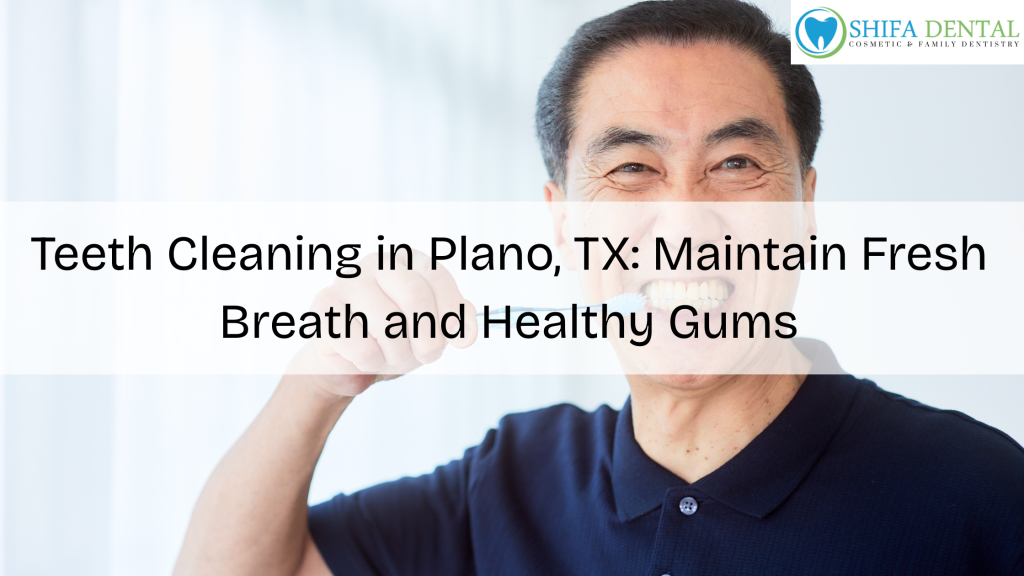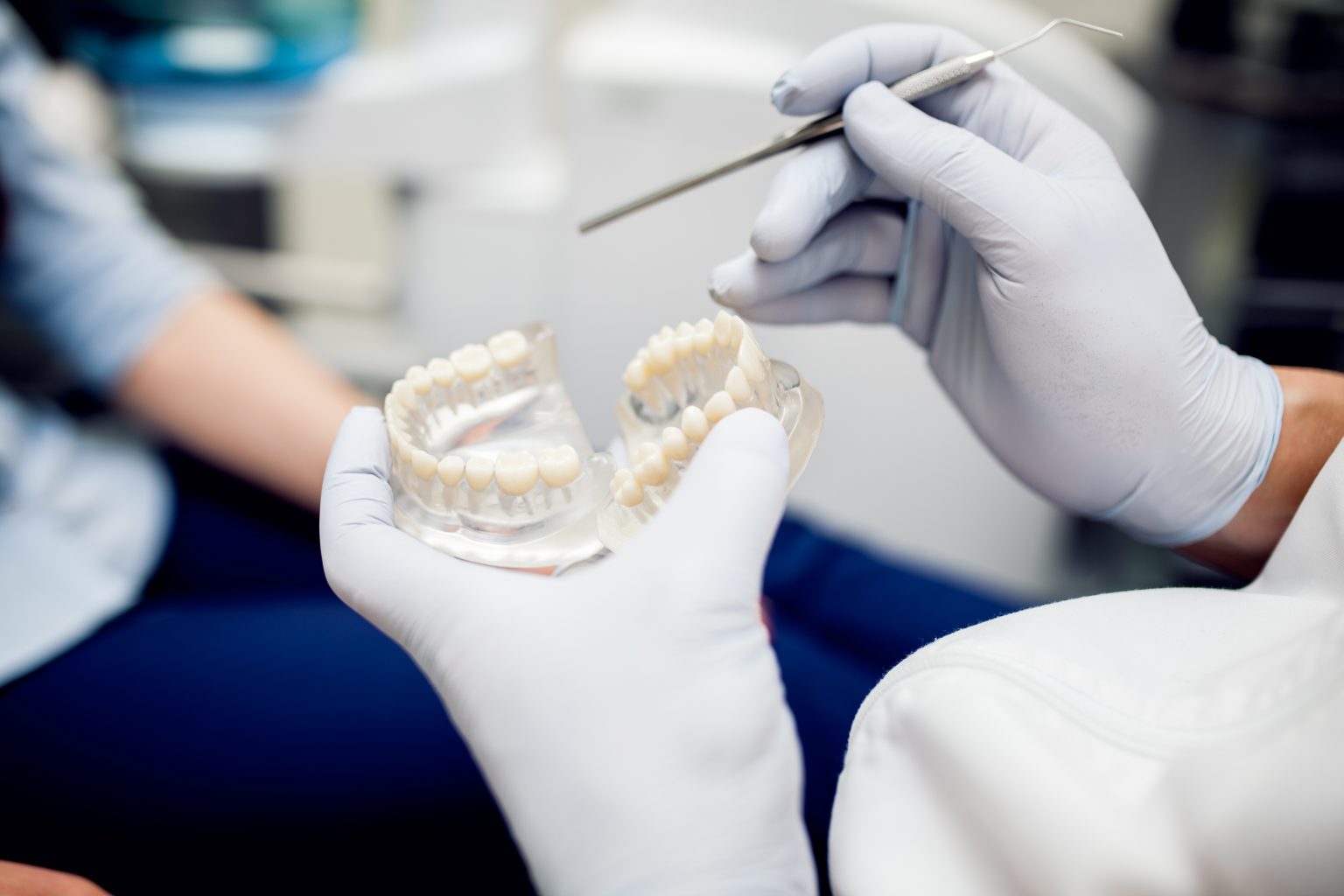Teeth Cleaning in Plano, TX: Maintain Fresh Breath and Healthy Gums

A bright, healthy smile begins with clean teeth and healthy gums. Regular teeth cleaning in plano, tx is a cornerstone of good oral hygiene, essential not only for aesthetics but also for overall health. At Shifa Dental in Plano, TX, we provide professional teeth cleaning services designed to remove plaque, tartar, and bacteria that regular brushing and flossing can’t fully eliminate. Our goal is to help you maintain fresh breath, healthy gums, and strong teeth for life.
While many people understand the importance of brushing and flossing at home, professional dental cleanings provide a deeper level of care, preventing cavities, gum disease, and other oral health complications.
Why Professional Teeth Cleaning Is Important
Even with diligent home care, plaque and tartar can accumulate in hard-to-reach areas of your mouth. Plaque is a sticky film of bacteria that forms on teeth, while tartar is hardened plaque that cannot be removed by brushing alone. Over time, plaque and tartar can lead to:
Tooth decay
Gum disease (gingivitis or periodontitis)
Persistent bad breath
Staining or discoloration of teeth
Professional teeth cleaning targets these hidden areas, ensuring that your teeth and gums stay healthy, preventing small issues from becoming major dental problems. Regular dental cleanings are a key component of preventive dentistry, which focuses on maintaining oral health and avoiding costly and painful treatments in the future.
Signs You May Need a Professional Teeth Cleaning
While regular cleanings are recommended for everyone, some signs may indicate that your teeth need extra attention:
Persistent bad breath
Gum bleeding during brushing or flossing
Swollen, red, or tender gums
Visible plaque or tartar buildup
Tooth sensitivity
Even if you don’t experience these symptoms, scheduling routine dental cleanings every six months is essential for maintaining oral health.
What to Expect During a Teeth Cleaning
Professional teeth cleaning at Shifa Dental is safe, painless, and thorough. Our experienced dental team ensures every patient has a comfortable experience while receiving high-quality care. A typical teeth cleaning procedure includes:
1. Initial Examination
Your dentist or hygienist examines your teeth, gums, and oral tissues to assess your overall dental health. They may take X-rays if needed to identify hidden cavities or other dental issues.
2. Scaling
Using specialized instruments, the dental hygienist removes plaque and tartar from the surfaces of your teeth and below the gumline. This step is essential for preventing gum disease and tooth decay.
3. Polishing
After scaling, your teeth are polished to remove surface stains and smooth the tooth surfaces. Polishing leaves your teeth bright, smooth, and clean, making it more difficult for plaque to adhere in the future.
4. Fluoride Treatment (Optional)
Fluoride may be applied to strengthen enamel and protect teeth against cavities, especially for children or patients prone to decay.
5. Patient Education
Our team provides personalized guidance on brushing, flossing, and other oral care practices to maintain the results of your professional cleaning at home.
Benefits of Regular Teeth Cleaning
Regular teeth cleaning provides multiple advantages that extend beyond a healthy smile:
1. Prevents Gum Disease
Professional cleaning removes plaque and tartar that can cause gingivitis or periodontitis. Healthy gums reduce the risk of tooth loss, inflammation, and other complications.
2. Freshens Breath
Bacteria buildup in the mouth is a primary cause of bad breath. Cleaning eliminates these bacteria, leaving your mouth fresh and clean.
3. Prevents Cavities and Tooth Decay
By removing harmful plaque and tartar, dental cleanings protect teeth from decay and the need for fillings or other restorative procedures.
4. Maintains a Bright Smile
Polishing removes surface stains caused by coffee, tea, tobacco, or other foods, keeping your teeth looking bright and natural.
5. Promotes Overall Health
Oral health is closely linked to systemic health. Gum disease has been associated with heart disease, diabetes, and respiratory infections. Regular dental cleanings help protect your overall well-being.
6. Early Detection of Problems
Routine cleanings allow dentists to identify issues early, such as cavities, enamel erosion, or oral cancer, improving the effectiveness of treatment and reducing costs.
Deep Cleaning vs. Regular Cleaning
Some patients may require deep cleaning, also known as scaling and root planing, particularly if they have gum disease.
Regular cleaning: Removes plaque and tartar from the surfaces of the teeth and just below the gumline. Recommended every six months for patients with healthy gums.
Deep cleaning: Involves cleaning below the gumline and smoothing the root surfaces. Typically recommended for patients with gingivitis or periodontitis to prevent further damage and restore gum health.
Your dentist will recommend the most appropriate cleaning based on your oral health needs.
Preventive Tips Between Dental Visits
To maximize the benefits of professional cleaning, patients should maintain consistent oral care at home:
Brush at least twice daily with fluoride toothpaste
Floss once daily to remove plaque between teeth
Use an antibacterial mouthwash if recommended
Limit sugary foods and beverages
Maintain a balanced diet rich in calcium and vitamins
Drink plenty of water to help rinse away food particles and bacteria
These habits help prolong the results of your professional cleaning and reduce the risk of dental problems.
Teeth Cleaning for Children
Early dental care is crucial for children to develop lifelong healthy habits. Regular teeth cleaning for children:
Removes plaque and tartar that can lead to cavities
Helps prevent gum disease from a young age
Teaches proper brushing and flossing techniques
Monitors developing teeth and jaw alignment
Protects permanent teeth as they emerge
Children who develop a positive relationship with dental care are more likely to maintain consistent oral hygiene throughout life.
Teeth Cleaning for Adults
Adults benefit from professional teeth cleaning by:
Maintaining gum health and preventing periodontal disease
Removing stains for a brighter smile
Preventing cavities and tooth loss
Supporting overall health by reducing the risk of systemic diseases linked to oral health
For adults with chronic conditions such as diabetes, regular cleaning is especially important because gum health directly affects overall well-being.
Teeth Cleaning for Seniors
As we age, teeth and gums become more susceptible to:
Gum recession
Tooth sensitivity
Dry mouth
Wear and tear on dental restorations
Professional teeth cleaning helps seniors maintain healthy teeth and gums, prevent decay, and ensure a comfortable, functional bite. Regular cleaning also allows dentists to monitor for signs of oral cancer or other age-related oral health issues.
Why Choose Shifa Dental for Teeth Cleaning in Plano, TX
At Shifa Dental, we provide comprehensive dental care, including general dentistry, cosmetic treatments, dental implants, orthodontics, emergency dental care, and pediatric dentistry. Choosing Shifa Dental ensures:
Expert Dental Team: Skilled dentists and hygienists focused on patient comfort and safety
Advanced Technology: Modern instruments for thorough, gentle cleaning
Personalized Care: Tailored oral health recommendations for each patient
Family-Friendly Environment: Gentle, compassionate care for patients of all ages
Our mission is to keep your teeth and gums healthy, prevent dental problems, and create a positive dental experience.
Schedule Your Professional Teeth Cleaning
Maintaining a healthy smile begins with regular dental cleanings. Professional teeth cleaning at Shifa Dental in Plano, TX, ensures your mouth stays fresh, your teeth strong, and your gums healthy.
📍 Location & Contact:
Plano, TX: 5509 Pleasant Valley Dr #90A, Plano, TX 75023
📞 (972) 423-1613
🌐 Website: www.shifadental.net
Don’t wait for problems to arise—schedule your teeth cleaning appointment today and enjoy a fresh, healthy, and confident smile.

